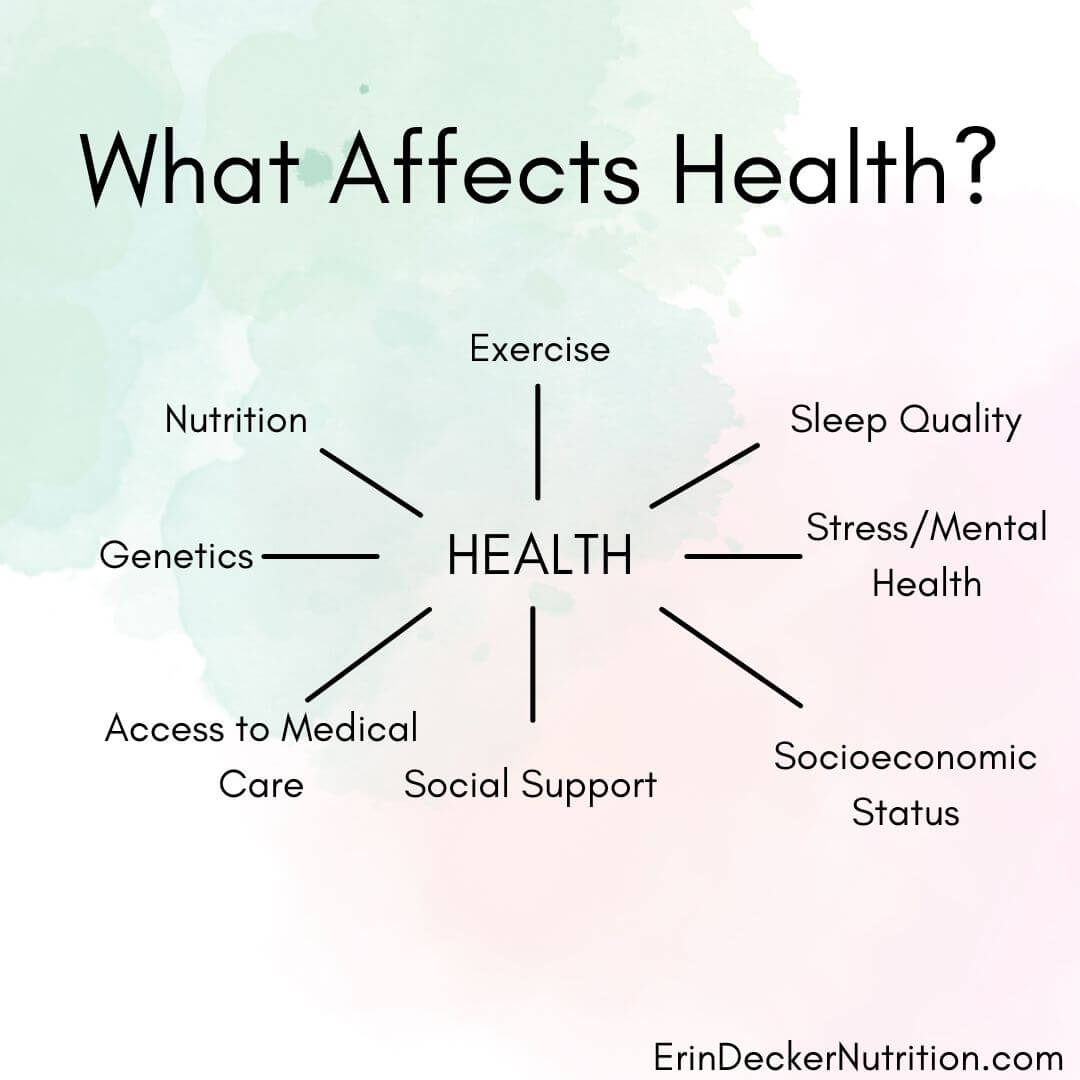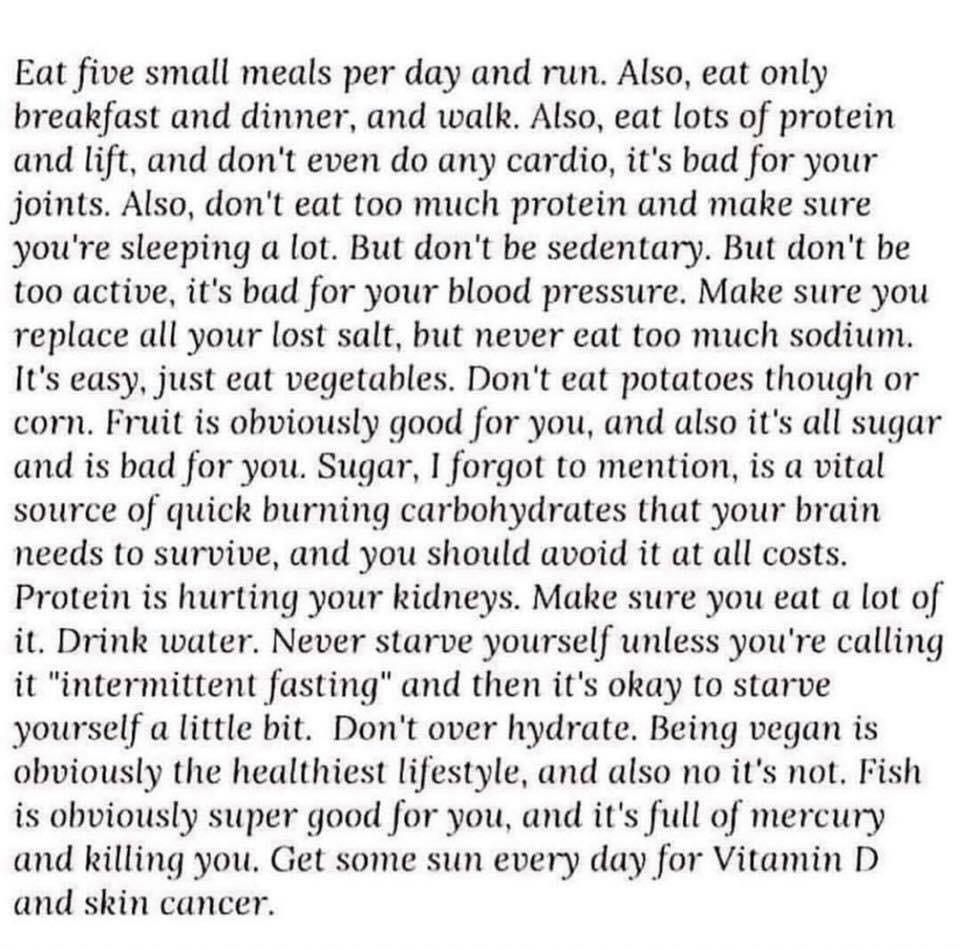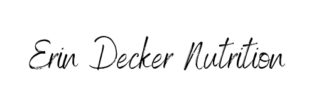We live in a world where food is not just nourishment, but one where it is laden with social, cultural, and emotional significance. Many of my clients do feel guilty after eating. Whether it’s indulging in your favorite dessert, veering off your diet plan, or simply enjoying a meal without meticulously counting calories, guilt can creep in and cast a shadow over what should be a pleasurable experience.
This blog post will outline what food guilt is, where it comes from, when you should be concerned, and practical strategies to reduce these unpleasant feelings.
Table of Contents
What is food guilt?
Food guilt is the feeling of remorse, shame, or anxiety that arises after eating certain foods or food in general. This guilt may manifest after indulging in a favorite treat, deviating from a strict diet plan, or simply enjoying a meal without adhering to strict “food rules”. It can lead to a strained relationship with food and contribute to the diet cycle.
Recognizing and addressing food guilt can help you build a healthier and more balanced approach to eating and overall well-being.
Why do you feel guilty after eating?
Food guilt stems from a variety of sources, including societal pressures, cultural norms, internalized beliefs about food and body image, as well as personal experiences with dieting or disordered eating patterns.
Societal and cultural norms
Society perpetuates unrealistic ideals of beauty, health, and morality that dictate what foods are deemed “good” or “bad.” This can lead you to feel guilty for consuming foods that are labeled as such.
However, recognize that food is not morally “good” or “bad”. You don’t need to eat perfectly to be healthy. Not to mention, there is no perfect diet anyway!
Diet culture and fat-phobia
The pervasive influence of diet culture and fat-phobia promotes restrictive eating patterns and unrealistic body standards. They both lead you to believe that you can control your body size if you just “eat right”. This instills feelings of guilt when your will-power inevitably fails and you indulge in “forbidden” foods.
While diet may play a role in your body size to a certain point, the reality is that bodies come in different sizes. What you eat may have very little influence on your body shape size.
Family dynamics
Childhood experiences and family attitudes toward food and eating habits can significantly impact your relationship with food. For example, maybe you were taught to clear your plate, or your parents were always trying one diet after another.
Media and advertising
Media portrayals of idealized bodies and messages promoting fad diets and “clean eating” can exacerbate feelings of guilt around food choices. Advertising often associates guilt with indulgence in certain foods while glorifying others as virtuous or health-promoting.
Food product marketing has reinforced this as well. For example, Trader Joes has long had a line of “reduced guilt” products that meet certain nutrient thresholds.
Past experiences with dieting or disordered eating
Previous experiences with dieting, weight stigma, or negative feedback about your body can contribute to food guilt. Certain behaviors around food are praised in our society (e.g. eating a salad) while others are criticized (e.g. getting a second helping.)
Traumatic events or associations related to food can also trigger feelings of guilt when eating, such as someone commenting on your food choice and/or body size.
Personal beliefs and values
Individual beliefs, values, and perceptions about food, health, and self-worth may contribute to food guilt. For some, religious or ethical considerations may influence food choices. Someone who chooses to be vegetarian might feel guilty if they accidentally consume an animal product.
Should you be concerned about food guilt?
I don’t think food guilt is inherently a problem. After all, it is totally understandable that you might run into it occasionally given the many causes. If you are able to recognize it and it doesn’t take away from other areas of life it may not be an issue.
On the other hand, feeling guilty about eating can be a symptom of an eating disorder or disordered eating. If you found yourself here because you googled “food guilt”, it might be worth unpacking how it is affecting your life! Food guilt isn’t something you have to live with.
How to stop feeling guilty after eating:
Step 1: Identify the food guilt.
Awareness of food guilt is a success in itself. And if you’re here reading this, you must have some awareness of your food guilt already!
I often ask my clients to keep a food and thought journal. Document what you eat and any thoughts that you have about it. No judgments here! You don’t need to share it with anyone.
Step 2: Challenge and reframe the negative thoughts
Once you are aware of the thoughts, explore where they came from. Then, see if you can reframe them in an alternative way.
For example:
This cupcake will make me gain weight.
Positive reframes:
This thought comes from diet culture.
I am not in control of my body size.
This cupcake might be satisfying and delicious.
If I eat this cupcake, I might not have any cravings.
Step 3: Make peace with your natural body size.
The set point theory suggests that you might not be totally in control of your body size. This can be hard to accept and make peace with. And I get it – our culture reinforces unrealistic ideals of beauty and health. It can almost feel like anti-health to accept your body.
However, weight neutral interventions do demonstrate health-promoting outcomes while simultaneously promoting positive body image. You might not lose weight, but most weight is regained on diets anyway!
Step 4: Accept the nuances in health.
Health is complex. It is true that what you eat can impact your health and longevity. However, If what you eat negatively impacts your emotional wellbeing, it might not be worth it. Mental health is health. In addition, there are multiple factors that influence our overall health.

- Get support.
You believe what you surround yourself with. Build your support network to include those with a compassionate approach to health and nutrition. Follow people on social media who embrace a non-diet approach and intuitive eating. Diversify your feed, on and offline, to include people of all shapes and sizes. Connect with a professional whose values align to help guide you in your journey. Depending on your situation, your insurance may even help cover it!
In conclusion
If you’re feeling guilty about eating, know that you’re not alone. There’s many reasons you might feel this way from our social and cultural norms, family dynamics, diet culture, and your own experiences. The guilt you feel can be a symptom of an eating disorder or disordered eating. There is help available! Experiment with the tools provided here, and as always, feel free to reach out if you need some guidance.


It’s not uncommon for one to feel food guilt, but it’s important to know what the source of it is and how it can best be addressed. Great insight here!